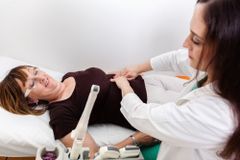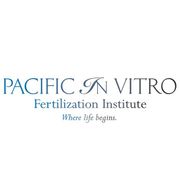Your Guide to Premature Menopause & Infertility

Menopause is something every woman will go through and marks the end of her ability to have children. Sometimes, it can happen prematurely, leading to infertility, but that doesn’t necessarily mean you’re incapable of having children. A fertility clinic can be an invaluable resource if you’re facing premature menopause and may provide solutions to side effects and challenges you’re facing.
What Happens During Menopause?
During menopause, a woman’s menstrual cycle permanently stops roughly around the age of 45. The ovaries no longer produce estrogen and progesterone, the two primary reproductive hormones. Menopause is diagnosed after a woman hasn’t had her period for one year.
What Is Premature Menopause?
 Premature menopause, also known as premature ovarian insufficiency or premature ovarian failure, occurs when the ovaries stop working before the age of 40. It results in infertility, though the woman may have the occasional period or release eggs.
Premature menopause, also known as premature ovarian insufficiency or premature ovarian failure, occurs when the ovaries stop working before the age of 40. It results in infertility, though the woman may have the occasional period or release eggs.
There are a number of potential causes, including chromosomal defects, autoimmune diseases that affect egg production, or toxins picked up from chemotherapy, smoking, pesticides, or viruses. These all stop estrogen and progesterone production so the ovaries can no longer produce eggs to conceive a child.
The symptoms are similar to those of menopause and include:
- Night sweats
- Vaginal dryness
- Decreased sexual drive
- Hot flashes
- Irregular or skipped periods
- Irritability
What Fertility Treatments Are Available?
While there’s no cure for infertility, a fertility clinic can help you explore options. They can prescribe medication to stimulate ovulation if it’s still possible. Intrauterine insemination is a popular method in which healthy sperm is injected into the uterus during ovulation. Even with premature menopause, your ovaries may still have some eggs that could become inseminated.
In vitro fertilization is another option. At the fertility clinic, professionals will remove any remaining eggs from your ovaries, fertilize them with sperm, and develop the embryo in a lab. They’ll then transfer it to your uterus where it can grow into a baby.
If you have concerns about premature menopause and infertility, Pacific In Vitro Fertilization Institute in Honolulu, HI, is here to help. Since 1985, they’ve cared for patients dealing with infertility and offered a range of solutions to help them conceive. Visit their website to learn more about in vitro fertility treatment, or call (808) 946-2226 to schedule a consultation at the fertility clinic.
About the Business
(3 reviews)
Have a question? Ask the experts!
Send your question

